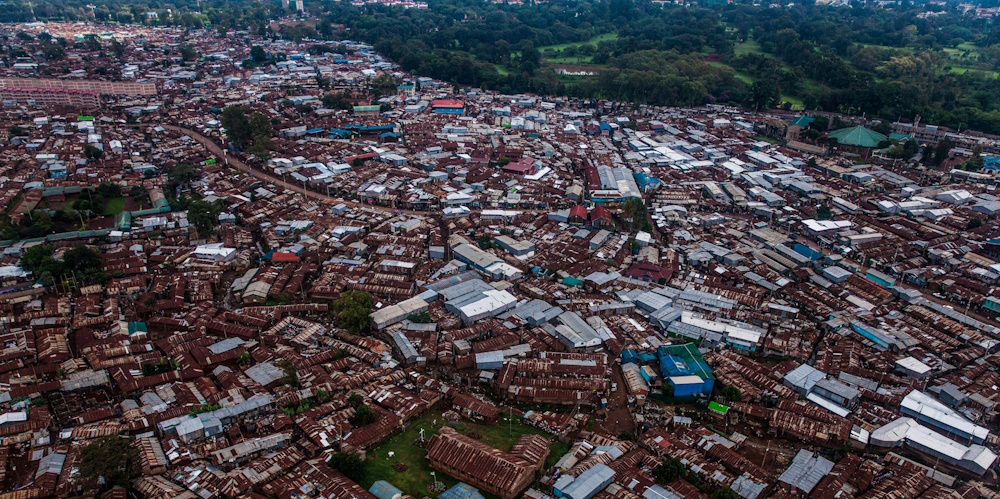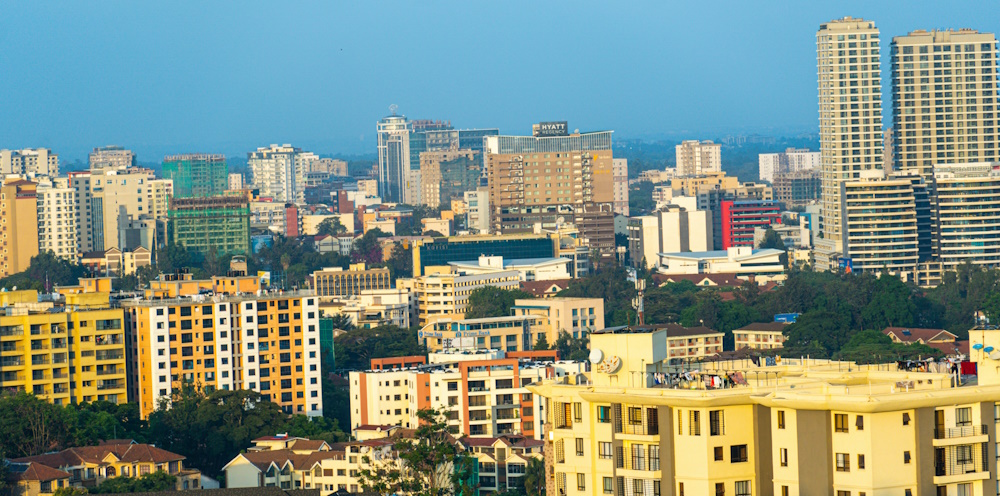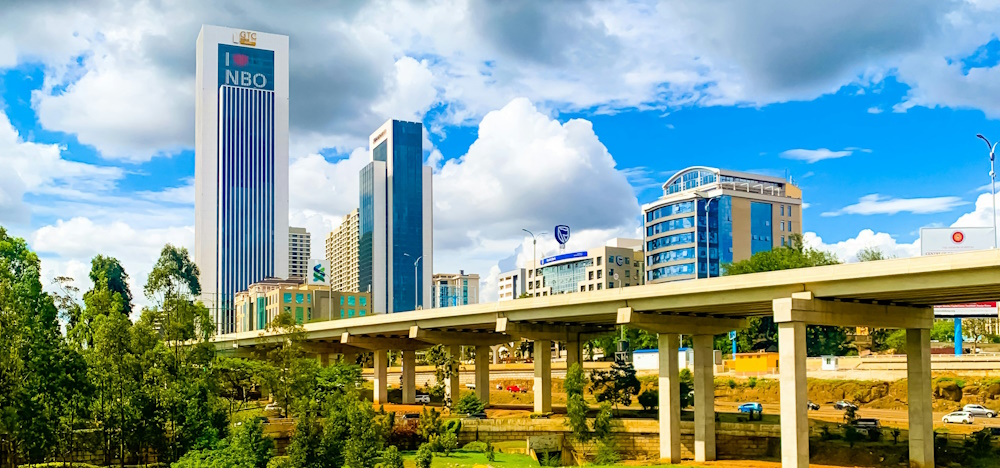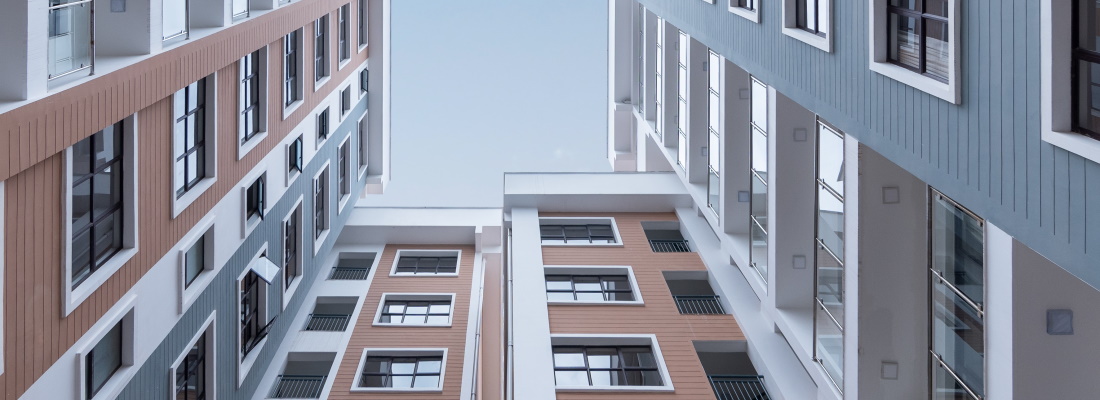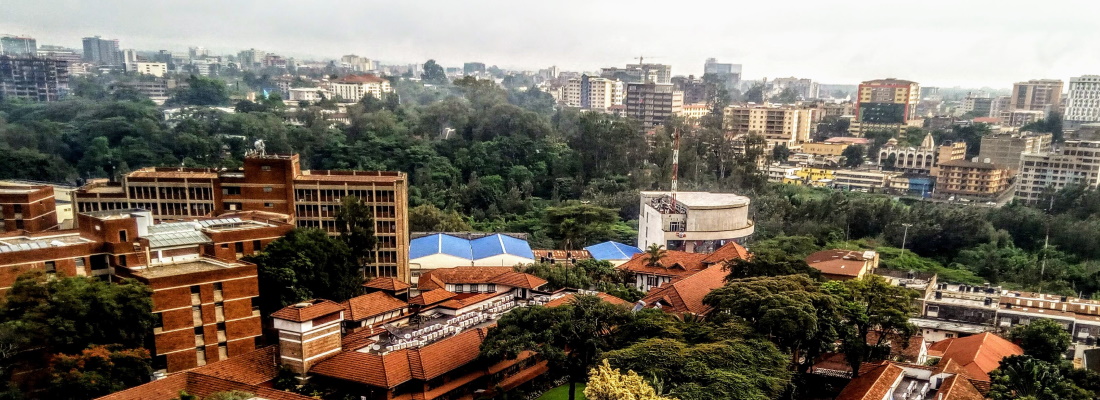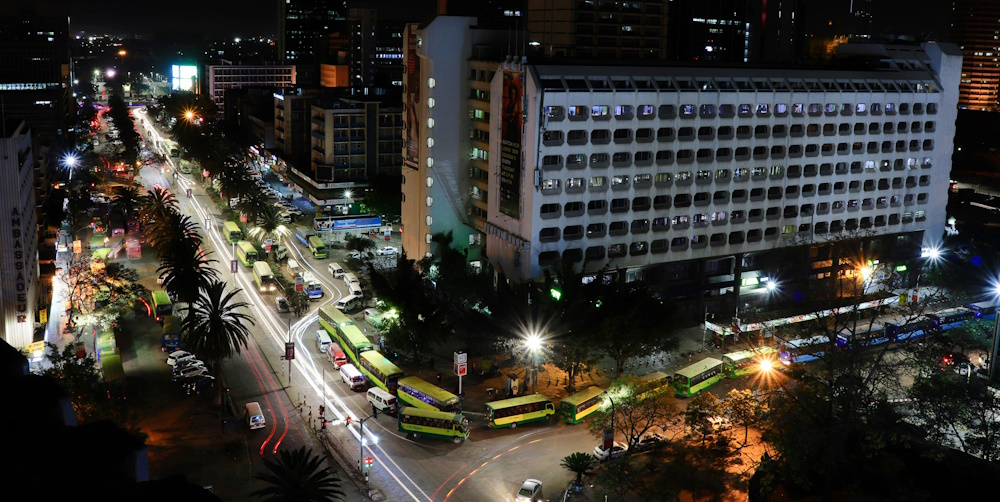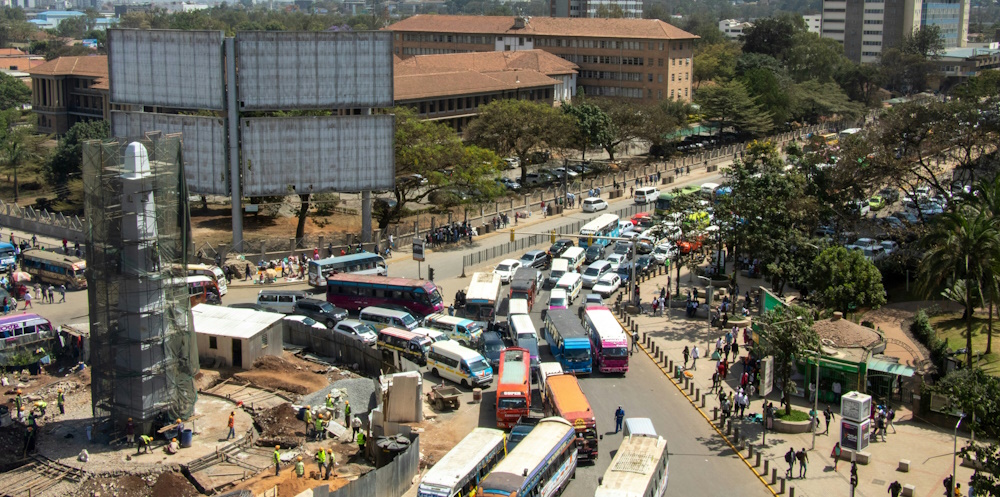In Kenya's capital city, you can explore excellent shopping malls, bars and restaurants and enjoy the seemingly boundless natural wonders within easy reach of the city – all of which make for an enviable lifestyle in Nairobi.
Eating out in Nairobi
With people from all over the world, Nairobi offers all types of cuisine. Fine dining restaurants, bustling markets and small local eateries provide interesting dishes to suit any palate or budget. Popular dining areas include Westlands, Karen and Gigiri. These areas offer a variety of options, from international cuisine to authentic Kenyan dishes.
Nairobi's dining scene has seen a significant transformation in recent years, with a surge in new restaurants and cafés offering diverse cuisines. The city blends traditional Kenyan dishes with contemporary culinary trends, which is evident in trendy eateries and fine dining establishments catering to locals and tourists. Coffee houses are also becoming increasingly popular.
Shopping in Nairobi
Many new shopping malls have appeared in Nairobi in recent years, and some older ones have had upgrades to serve the growing middle-class and international communities. New malls like Two Rivers Mall and The Hub Karen offer a mix of international and local brands, entertainment options and dining. Older malls like Sarit Centre and Westgate have modernised their interiors, expanded retail spaces and improved amenities.
Multiple independent arts and crafts businesses offer an excellent selection of goods, and buying from local artists is a good way to support the Kenyan economy. Local craft markets, such as the Maasai and Kariokor markets, offer an excellent choice of handmade items such as clothes, art, jewellery and footwear. Always negotiate prices, compare prices by visiting multiple stalls and seek local advice to avoid overpriced items.
Nairobi has numerous large supermarket chains and gourmet food shops, but you shouldn't overlook local produce markets for the best deals on fresh fruit and vegetables bought directly from farmers. New local produce markets have gained popularity, offering fresh and organic goods.
Nightlife and entertainment in Nairobi
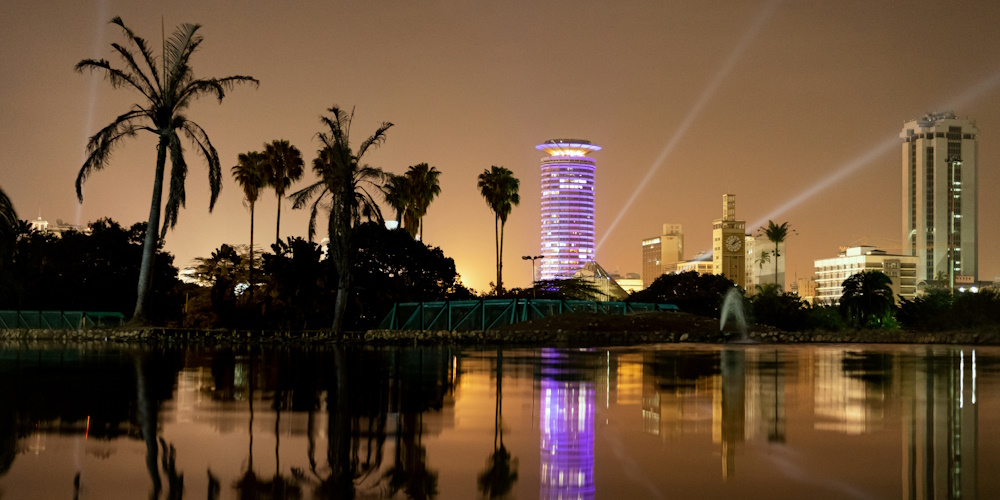
There is always something new on the nightlife scene in Nairobi. Every neighbourhood has a local establishment or bar where you can meet socially or for business, so regardless of where you live in Nairobi, you won’t have to travel far to find a suitable watering hole. Hotspots include Westlands, Kilimani and the CBD, which offer a mix of traditional and modern entertainment venues.
Nairobi's nightlife has seen new trends, including the rise of rooftop bars, themed nights and live music events. These trends cater for a diverse crowd, offering unique experiences and a lively atmosphere. Champagne and cigar lounges are popular and serve the growing affluent population of the city, while nightclubs are open until the early hours.
Most large shopping malls in Nairobi have cinemas, and some even have IMAX theatres. Also on offer are art exhibits, concerts, live theatres and cultural events.
Sports and outdoor activities in Nairobi
Sports and outdoor activities in Nairobi offer a wealth of options for you to explore. Nairobi National Park is an excellent excursion for animal lovers, where you can enjoy enhanced wildlife safaris, spotting lions, rhinos and giraffes against the city skyline. The Nairobi Safari Walk provides an educational experience about Kenya's diverse ecosystems and wildlife conservation efforts.
Karura Forest offers various daytime activities with new trails for hiking, cycling and jogging, along with improved picnic spots and team-building areas. Guided nature walks give you insights into the forest's biodiversity and conservation efforts.
The Nairobi Arboretum has undergone significant rehabilitation, focusing on maintaining over 300 species of exotic and indigenous trees and enhancing visitor facilities. Uhuru Park has seen restoration projects to improve its green spaces and facilities, making it more attractive for recreational activities.
Kenya's capital city also boasts several top-quality golf courses and societies, including Royal Nairobi Golf Club, Muthaiga Golf Club and Karen Country Club. New golf societies offer organised events and tournaments for enthusiasts.
Away from the hustle and bustle of the city, you don't have to drive far for exquisite views of the Great Rift Valley. Popular day trips include Mount Longonot for hiking, Hell’s Gate National Park for rock climbing and cycling, Ngong Hills for scenic views and Lake Naivasha for boat rides and bird watching. Kiambethu Tea Farm provides a unique experience of tea farming and tasting.
See and do in Nairobi
If you get the opportunity to live in Kenya's capital, you will find there is no shortage of things to see and do in Nairobi and exciting places to explore.
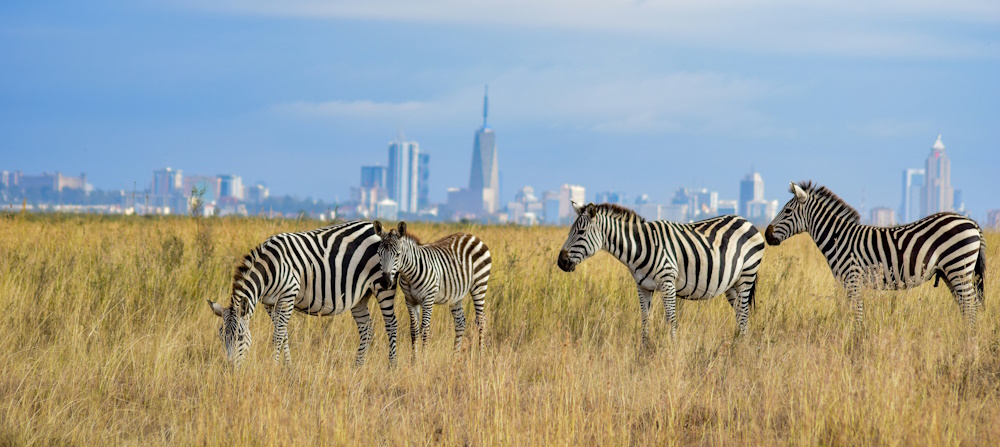
Nairobi National Park
It may surprise you that a national park is located in Kenya's capital city, just four miles (7km) from the city centre. Nairobi National Park offers great safari experiences, with Nairobi's skyscrapers making for an unusual game park backdrop. Lions, leopards, cheetahs, hyenas, buffalo, giraffes and around 500 species of birds inhabit the park.
Bomas of Kenya
If you are interested in learning about the country's rich local culture and history, you should visit the Bomas of Kenya. Located in Langata, this tourist hotspot displays traditional homes and offers daily cultural performances. The facilities have been enhanced to accommodate visitors better, making it a great spot for cultural immersion.
David Sheldrick Elephant and Rhino Orphanage
Founded in the 1970s, this orphanage operates a rescue and rehabilitation programme, nursing sick elephants and rhinos back to health. Make reservations in advance, as the orphanage limits the number of visitors per day. The best time to visit is between 11am and 12pm, when the baby elephants are fed and bathed. Consider adopting an elephant to support the orphanage's conservation efforts.
Giraffe Centre
The Giraffe Centre was established in the 1970s by a married couple who famously raised two baby giraffes at their home in the Langata area of Nairobi, where the centre remains to this day. You can even feed and interact with the centre's giraffes. Ongoing conservation programmes focus on breeding and releasing Rothschild giraffes into the wild.
Maji Magic
Maji Magic is an aqua park perfect for families and kids looking for a bit of fun in the sun. You can work your way through obstacle courses, try out stand-up paddleboarding or play in bumper boats. It's an ideal spot for a family day out.
Nairobi National Museum
Promoted by the Kenya Museum Society, the Nairobi National Museum offers lots of information about Kenya's history, culture, palaeontology and art. Once you have had your fill of the museum, there is also a botanical garden, as well as dining and shopping facilities to while away another hour or two. New cultural centres and museums have opened, showcasing Kenya's rich heritage and contemporary art.
What's on in Nairobi
What's on in Nairobi offers plenty to keep you busy throughout the year, from art and music festivals to safari rallies.
Cake Festival (June)
Attendees of this event are in for a sweet day out as baked goods of all shapes and sizes abound here. Aspiring bakers can check out live cake-decorating demonstrations, while little ones can attend a baking class just for kids. The festival continues to grow with more participants and diverse cake designs and flavours.
International Puppetry Festival (September)
Here, you get to experience traditional forms of puppeteering, and each year has a theme. It's a fun day out for the whole family, and the kids will enjoy the lively performances. The festival features puppeteers from around the world, offering unique entertainment for all ages.
Shaggy Dog Show (September)
Animal lovers come from all over to participate in this family-friendly day organised by the Kenya Society for the Protection and Care of Animals (KSPCA). Highlights include a fancy dress competition for both owners and their dogs, as well as awards for 'happiest dog', 'best-groomed dog', and of course, 'shaggiest dog'.
Jamhuri Day (December)
On December 12, Kenya celebrates its independence on Jamhuri (Republic) Day, commemorating the day Kenya became an independent republic in 1964. It is a national public holiday when everyone takes a day off work and relaxes. Celebrations include interactive and community-focused events such as parades, cultural performances and public exhibitions showcasing Kenya's history and achievements.
Meeting people and making friends in Nairobi
Arriving in a new city and not knowing anyone can be daunting. Figuring out where to start meeting people can be a challenge. Joining local clubs and societies is a great way to meet like-minded individuals. Here are a few recommendations to get you started in Nairobi.
Looking to learn Swahili or improve your English? Tandem Language Exchange offers a platform to find language exchange partners in Nairobi. It's a fantastic way to enhance your language skills while meeting new people and immersing yourself in the local culture.
The Rotary Club of Nairobi is part of the international Rotary network, focusing on community service and development projects. Joining the Rotary Club gives you the chance to contribute to meaningful causes while networking with like-minded individuals. It's a fantastic way to make a positive impact and build lasting friendships.
The Kenya National Theatre is a hub for arts and culture in Nairobi. It offers a variety of performances, workshops, and cultural events. Engaging with the theatre's activities provides an excellent opportunity to connect with fellow art enthusiasts and creatives.
The Nairobi Hash House Harriers is a social running club that meets regularly for runs followed by social gatherings. It's a fun and active way to meet new people and stay fit. The club welcomes runners of all levels and is known for its friendly and inclusive atmosphere.
